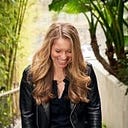A Few Lessons from Vinod Khosla
Reflecting on my last day at Khosla Ventures

After 3.5 years, today is my last day at Khosla Ventures.
To say I have learned a lot would be an understatement. It would not be possible to summarize all my learnings in one post, but I would like to first say, thank you Vinod Khosla and the entire partnership for taking a chance on me.
Thank you to the founders who I had the opportunity to work with as well. It really energizes me to work with founders with ambitious goals, to witness them taking risks and facing the obstacles to get to “Everest,” as Vinod would say.
While it’s hard to summarize this in a post, the lessons I’ve learned from Vinod and Khosla Ventures could fill a library. Here are a few:
“Surround yourself with the people you can learn from at the fastest pace”
Vinod operates on a different level than most humans (and note, he is 66 years “young”); back-to-back meetings all day and never wastes a minute. If choose to go on a trip with him, expect that you’ll have a full day, maybe leave at 7pm or 8pm for the destination after a full day of work, you’ll arrive at 2am, then pack in a full day of meetings starting at 7am going until 9pm. Or, perhaps during Y-combinator, he will take10 hours of back-to-back 15 minute meetings on a Sunday! Vinod works tirelessly because he believes every minute has the potential to impact an entrepreneur, and potentially society. While the pace of meetings was fast, the pace of learning was even faster.
Vinod’s philosophy of learning is to surround yourself with the smartest people and by ingesting that at as fast of a pace as possible. At Khosla Ventures, he assembled a brilliant team, where each person has a very unique background and point of view, challenging each other in a way that I believe makes everyone else better for it. I can check off being the “dumbest person in the room” goal many times over. David Weiden showed me the ropes of investing and the art of negotiating. Sven Strohband challenged me to only work with people who are BOTH smart and nice, and helped me build a technical lens to better evaluate companies. Samir Kaul taught me the art of building strong connections and the importance of getting to the root of key questions. Evan Moore, Alex Morgan, Kanu Gulati, Rajesh Swaminathan, Alice Brooks, Adina Tecklu were extraordinary partners in crime for looking at opportunities, and taught me different approaches to evaluate companies. Peter Buckland, John Demeter, Luis Bacalao were instrumental in teaching me legal nuances and strategic metaphorical chess moves, and Ruthie Dionisio and team taught me next level organization on how to make the trains run. Every person taught me something.
Better to take the harder, more challenging route with the smartest people where you learn at the fastest pace than the easy one. When you optimize for learning, you grow faster, accomplish more, and ultimately (hopefully) have a higher impact. It wasn’t easy, but gosh, was it worth it.
“It’s not the plan you make, but the people you hire.”
Vinod dedicates an enormous amount of time to interviewing key hires (8–10+ hours a week!), and he has an incredibly high bar for people he hires — sometimes painstakingly so. “But that person is so well regarded.” Vinod simply responded, “Kristina, they just aren’t as good as we need or right for that specific role.”
Vinod taught me that the caliber of the team is the single most important factor in predicting the success of the company; that the “best people from x industry” are not usually the best for radical innovation. They are instead the ones who hustle, think non-linearly, and apply some novel idea to a completely new industry.
Vinod asks tough questions during the interview process, and can quickly read past what someone is saying, and understand their thinking behind it. He taught me so much about better evaluating people and assessing how to build “the kitchen cabinet” or the key people early in a company (or in choosing startups to invest in!). Be sure to choose the right people.
“Know who to take advice from and on what topic.”
Vinod is ruthless about who he takes advice from. He believes it’s easy to get the wrong advice. He would say this is one of the most important lessons for an entrepreneur, and most investors give advice that hurt companies rather than help. There were times I’d ask, “well, why aren’t you taking his/her advice?”, and Vinod would reply, “That’s not his/her strength.” He taught me the importance of understanding each person’s strengths and to prioritize advice based on them. Taking the wrong advice? That can be a missile to what you are building.
He also taught me to be more discerning about whose opinions I should care about. To not care about what everyone thinks — it does not matter and it makes you lose focus of what does matter. He famously doesn’t care much about what journalists think, but he definitely cares what entrepreneurs think! I remember one time when we were in the final stretch of diligence with a company. The founder had done some back-channel references, and was nervous about Vinod’s reputation as being tough. Vinod canceled his meetings, and spent hours explaining every situation in which he disagreed with a founder or could have been seen as “tough”. When it mattered, he always took the time — knowing whose word to listen to, and whose to deprioritize.
“The details matter”
You might read this lesson and think, “duh,” but let me explain. Vinod is thoughtful about every detail for everything (seriously, everything), from the specific brand of green tea to the sourcing of the threads in the carpet to redesigning boardroom tables so everyone has a clear view of the screen. No detail went unnoticed.
Vinod scrutinizes every document sent to him. He once asked me to send over an editable version of the fundraising deck for a portfolio company on a Friday afternoon. At around midnight, he was editing their slides, with feedback from messaging to font size and color changes. He also had detailed specificity when it came to language. He would often read and write his own copy into legal documents, ensuring every word and it’s placement was correct. After he wrote the 87 pages of Reinventing Societal Infrastructure, I gave him feedback that it might be worth dialing it back a bit, to which he responded “No, I have every word in there for a reason; the right people will take the time to read it.”
He taught me when you’re running a business, it’s critical to think through every detail, and no detail is too small or insignificant. When I reflect on the last 3.5 years, I see why all those small pieces, all those seemingly tiny decisions, really mattered. The sum of those pieces is what got Vinod to where he is today.
“Every single time in your life when you choose to do something, you are choosing not to do something else.”
There are always trade-offs for everything — in company building and in life. Risk management is always a hard challenge for entrepreneurs, especially if you’re going for the bigger vision, and that requires hard choices.
I remember being in the car when Vinod was meeting with a founder who was thinking about selling his company (more on that here). Vinod explained to him that by focusing on the acquisition he wasn’t building the vision he set out to do; instead, he was simply settling (and who would want to do that?). He could go for the acquisition, but then he would not be accelerating his mission. Vinod taught me you can’t do everything, and you have to make the hard choices on what to do. There are always multiple ways to Everest, but you need an end destination in sight, and you must choose the path you’re going to hike.
“We are more limited by what we think we can’t do than what we can do”
Incremental innovation is pretty easy, but to reinvent an industry, it takes thinking outside the current status quo. Our mind is the biggest barrier to reaching a goal. Sometimes, you must think outside the box. This is something I’ve personally always believed in, but Vinod truly lived this, everyday.
Vinod is open to new ideas and thinking constantly, to be inspired by unexpected people, theories, or events. This was one of the learnings most surprising to me — he was open to hearing a new idea or perspective from anyone, whether from KV team members or a cold call email from a 15-year-old in India. Vinod has a childlike curiosity and energy for all new ideas — from anyone or anywhere. As perhaps a lighter story, I still remember the time Vinod came back from a Taylor Swift concert (or as he called it “a Taylor Swift session”) fired up with new ideas in all different industries, not just entertainment-related, but beyond. Putting yourself in new waters can get you to entirely new places.
“If you don’t have a belief system, you won’t make progress.”
Few people focus on the importance of values more than Vinod. He would gladly pass on a company that could have generated billions of dollars in value if it was misaligned with his values. “The only time you can test your values is when you have to give something up.”
More importantly, Vinod taught me about balancing what’s important and making the most out of life based on it. Family is incredibly important to Vinod, and while he’d work harder than any person I’ve met on this planet, he’d always make the time to take his kids to a hockey game, or his wife out for a date night, or to hike 20 miles in a day while listening to books on audio that would teach him new things, or to always make time for what matters the most (and for anyone who thinks Vinod is all business, he definitely has a softer side!). He lives his values and never compromises.
One of the most memorable times I had with Vinod is when we went to a dive bar in Boston after a long day of meetings. We ordered a glass of wine, and we chatted about the day. He stopped me and asked “Kristina, you’ve been working non-stop, how’s your family? How’s everything else going? Those aspects of life are more important than work.” It was one of those conversations that had a profound impact on me — a legacy is more than what someone does, it is how they do it, their values, and who they surround themselves with (both professional and personal).
“If everyone played it safe, we wouldn’t get anywhere.”
Vinod never believes in playing it safe, and in fact, this is the antithesis of innovation, of making an impact. Vinod taught me to always take the risk to do the right thing and be brutally honest. That’s what makes the difference in getting somewhere. You must be comfortably uncomfortable. And so in taking Vinod’s advice, I’m turning the next chapter — not playing it safe. I love the quote by John A. Shedd, “A ship in harbor is safe — but that is not what ships are built for.”
While it’s my last day at Khosla Ventures, Vinod and the team will continue being an inspiration to me. I plan to build on the incredible lessons and experience as I journey into new waters investing in founders with bold missions and strong brands.




